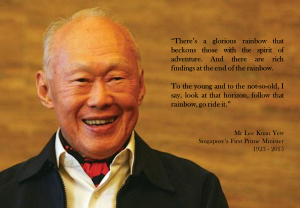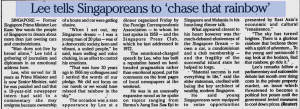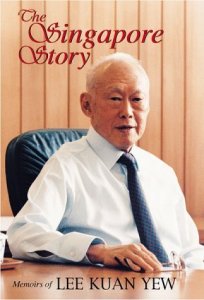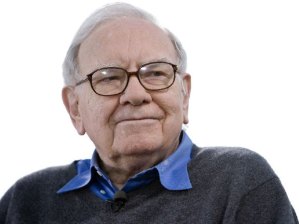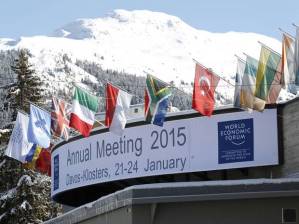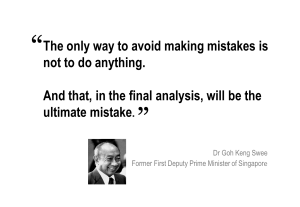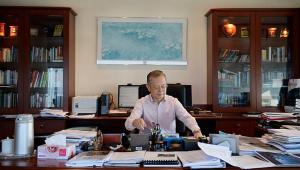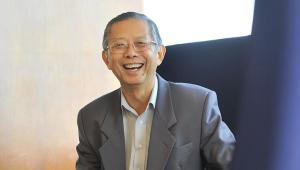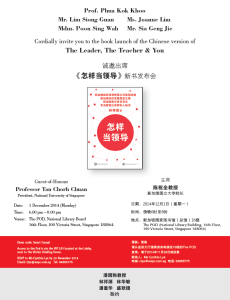In the previous post, it was mentioned that the Chinese version of the book “The Leader, The Teacher & You” contains two additional chapters.The following is an excerpt from one of the two chapters written by Ms Poon Sing Wah, who had translated the book from English to Chinese.
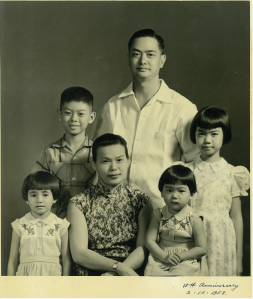
The Humble Beginnings of an Outstanding Figure: Interview with Mr Lim Siong Guan: Part I
By Ms Poon Sing Wah
With his humble beginnings, Mr Lim Siong Guan is the “Singapore Story” that Singaporeans can be proud of.
Mr Lim Siong Guan’s father, Mr Lim Teck Seng, was a taxi driver while his mother, Mrs Mary Lim, was a school teacher.
Mr Lim’s father came from the south of China to Singapore to make a living, and eventually married the daughter of his supervisor. After the wedding, he moved into a rent-controlled compound house in Upper Serangoon that was shared with 20 other relatives.
“My father was educated in China, where, perhaps, the standard of education then wasn’t very high but he put his heart and soul into learning English. He was very conscientious and was the type of person who would memorize the entire English dictionary. Since he was a taxi driver, he could speak many different dialects. My grandfather was Peranakan so we mainly spoke Malay and English at home. Even though my father was a Hokkien, we did not speak much Hokkien at home.
“We were also staying with two of my mother’s sisters. One of my uncles was a bus driver while the other was a truck driver. All of us lived together and as I was just one among all the children, I was not spoilt. We were not well-off. We children got only two new sets of clothes a year – during Chinese New Year and at Christmas,” said Mr Lim.
As Mr Lim’s father was busy at work, he was not at home most of the time but he would try to be near Mr Lim’s school to pick him up every now and then. That always surprised and excited the young Mr Lim. “Every fortnight or so, my father would “happen” to be at my school gates to bring me home. That made me very happy. It is his way of showing love to his children. I have three other sisters and my father would occasionally bring home some delicious food for all of us. He always told us to watch over our health. ‘Health is wealth,’ he used to say. Sadly, my father passed away when he was only 52 years old,” recounted Mr Lim.
He particularly remembers his father giving him a book “How to Win Friends & Influence People” by Dale Carnegie when he was in secondary two, which inspired him. He learnt how to win the trust of his teachers and peers through his actions. Most importantly, he learnt how to put others before himself, to see things from their perspective and to think of ways to help them to be better. Helping others has always made Mr Lim feel happy and satisfied.
He joined the Boys’ Brigade in secondary school and benefited greatly from it. The object of the Boys’ Brigade, which is the advancement of Christ’s kingdom among boys and the promotion of habits of obedience, reverence, discipline, self-respect and all that tends towards a true Christian manliness, acted as Mr Lim’s guiding light. During his time in the Boys’ Brigade, he was the leader of the band and a drummer. He even managed to attain the highest rank of Colour Sergeant. Joining the Boys’ Brigade taught him leadership and organizational skills.
“What right do I have to be proud? Even though I was the leader of the band, I still needed the cooperation of every single member. We had to return to school every Saturday to prepare for a band performance. Since I needed them very much, why don’t I think of ways to help them do their work better? That was how I felt.” explained Mr Lim, as to why he was never conceited and arrogant.
Mr Lim never had the luxury of tuition. His parents only asked that he would do his best in everything he did. As such, he was never pressured to excel in school. His father never blamed him if he did not do well in school. Instead, he would bring the family for a picnic at the beach to relax when he felt the children were too stressed.
Not long after Mr Lim was born, he was baptized, together with his mother, to be a Christian. His father only became a Christian much later in life. Ever since he was little, he would attend Sunday School every weekend, where he learnt that one should always seek to do what is good and right.
“We’re Methodist. My mother taught at Paya Lebar Methodist Afternoon School and that’s where I started school. My mother was strict at home and in school. She expected me to give my all in everything that I did. She was hardworking and well respected by her students. I think she was even feared by some of them. She was very well liked there. Everyone knew her as Mrs. Mary Lim. Back then, Paya Lebar Methodist Girls’ School functioned in the morning, while Paya Lebar Methodist Afternoon School took in boys. Before the entire school became absorbed as Paya Lebar Methodist Girls’ School, I was transferred to Anglo Chinese School at Coleman Street, thanks to the recommendation of my pastor. So now I am an alumnus of a girls’ school,” said Mr Lim.
As Paya Lebar Methodist Afternoon School was not nearly the same standard as Anglo Chinese School, Mr Lim found himself near the bottom of the class after his transfer in primary five. However, he was unfazed. “My parents only wanted us to do our best in school, so I was not in a state of panic,” explained Mr Lim.
Anglo Chinese School is often referred to as a “rich man’s school”, where many students come from wealth. However, Mr Lim does not think of it that way. “I can’t say that it was. All of us got along very well. I would say that many of the ACS (Anglo Chinese School) students later on succeeded in life so they become richer but I think during my time, I can’t say that about many of my classmates,” he said.
STUDYING OVERSEAS
It was only in secondary three when Mr Lim starting scoring As consistently. By the next year, he was the top of the class. However, it was unheard of then for students to score 8 A1s, 9 A1s, 10 A1s or even 11 A1s, as it is the case now for many students.
“To do 8 subjects in secondary school then was considered remarkable, and to score 6 distinctions at the O levels was already an excellent result. Very few people scored perfect scores, unlike today where we have about 2000 students who score 4 As at the A levels. During my time, there were less than 10 students, maybe even less than 5, who would score 4 As,” said Mr Lim.
Knowing that his only chance of getting a university education would be through a scholarship, he worked hard and did so well that he was awarded the Colombo Plan Scholarship to study Mechanical Engineering at the University of Adelaide.
“A group of us went to Australia in February 1965. We did not even know then which university in Australia we would be studying in. Perhaps, the Australian government thought we needed more time to better our English so all of us went to Sydney for 2 weeks for some sort of orientation. Only later did I learn I would be studying in the University of Adelaide. There were interesting things for us to learn, like “sit-down toilets” instead of “squatting toilets”, for example,” explained Mr Lim.
It was only much later on when he was in Australia when he learnt that he was awarded the Yang di-Pertuan Negara Scholarship, which is now known as the President’s Scholarship. His mother accepted the scholarship on his behalf.
Singapore had not gained independence then, and the head of state was known as the Yang di-Pertuan Negara. So the scholarship was not known as the President’s Scholarship at that time. According to an article dated 16 May 1965 from the Nanyang Business Daily, the Yang di-Pertuan Negara Scholarship was inaugurated to replace the Singapore State Scholarship. This scholarship is as prestigious as the Queen’s Scholarship, which was abolished in 1959 and replaced by the Singapore State Scholarship when Singapore gained internal self-government.
There were a total of 6 scholarship recipients in 1965: Fan Bing Tin, Liu Chao Xin, Lu Qing Quan and Zhuang Ming Jun from Raffles Institution; Lim Siong Guan from Anglo Chinese School; and Wang Yu Jin from Raffles Girls’ School. Before the announcement of the scholarship, Liu Chao Xin was already reading Chemical Engineering in New Zealand while Mr Lim was already reading Mechanical Engineering in Australia. After getting the scholarship, Fan Bing Tin went on to read medicine in Canada, Lu Qing Quan went to England to read Production Engineering, Zhuang Ming Jun went to England to read Economics and Wang Yu Jin went to England to read Chemical Engineering.
When asked about how the selection process of today’s scholarship recipients might be less rigorous, Mr Lim said, “I don’t really think the quality of scholarship holders then was better compared to today’s holders. Perhaps because the number of scholarships given out then was much lower so there’s the perception that the quality of today’s scholarship holders is worse. I think one of the biggest differences is that back then most of the scholarship recipients came from low-income families but that might not be the case today.”
OUTSTANDING CIVIL SERVANT
At the age of 66, Mr Lim Siong Guan is currently the Group President of GIC, the fund manager for Singapore’s foreign financial reserves with more than US$100 billion under management. By the estimation of some research institutes, the total worth of assets managed by GIC is closer to US$300 billion, which makes GIC the seventh biggest sovereign wealth fund in the world.
From October 2006 to June 2009, Mr Lim was the Chairman of the Economic Development Board (EDB), which is the government agency for promoting inward investment into Singapore. The EDB managed to obtain investments with total worth of more than S$17.2 billion (US$13.8 billion approx.) and S$18 billion (US$14.4 billion approx.) in year 2007 and 2008 respectively.
Among the investments, one of the most remarkable achievements was the Rolls-Royce deal. In November 2007, Mr Lim managed to convince British power systems and engines giant Rolls-Royce to choose Singapore over the United States for their second aero-engine assembly plant after their existing UK facility in Derby. With over S$320 million (US$255.2 million approx.) invested, this is the largest single investment deal in the aerospace industry in Singapore. Every year, the facility can produce more than 400 aero-engines, each costing US$15 million to US$20 million.
From September 1999 to March 2005, Mr Lim was the Head of the Singapore Civil Service and spearheaded many revolutionising transformations to the existing policies and system.
Mr Heng Swee Keat, Minister for Education once joked that during policy planning, officers can be heard saying “this is very LSG” in respect of certain values and approaches that Mr Lim advocated.
In 2005, Mr Inderjit Singh, Ang Mo Kio GRC Member of Parliament once said in Parliament that civil servants used to have the “government-knows-it-all” attitude, but now it has improved.
In 2003, Mr Singh visited 10 young Singaporean entrepreneurs in the United States and all said they would not return home as there were limited or no opportunities in Singapore. After living in the opportunity-filled United States, some even thought that it would be a wrong decision to return to Singapore. Mr Singh said he too faced persistent obstacles when doing business, a situation he attributed to the old habit among officials of dismissing any idea that did not have its origins in the Government. He called it the NIH syndrome, his acronym for Not Invented Here or Not Initiated Here. ‘If the Government did not invent or initiate it, it must be bad,’ he said, referring to how civil servants viewed any out-of-the-ordinary idea from entrepreneurs.
However, two years later, he noticed a change in the situation. The government would take U-turns when some policies were not effective. The government was no longer distrustful of the private sector when it came to policy formulation; it started to engage business leaders in shaping policies. And there was public consultation before any major policy was made. One of the examples is the setting up of the Economic Review Committee – the government invited people from all levels of society to have a thorough review of the economic policies and provide revolutionary ideas and suggestions.
Mr Singh specifically mentioned Mr Lim Siong Guan, “There is also now greater self-scrutiny in the government. For example the Pro-Enterprise-Panel led by Mr Lim Siong Guan, the Head of Singapore Civil Service, reviewed the current policies of various government departments, which in turn have urged the civil servants to change their mindset and be more accepting of new ideas.”
In June 1994, Mr Lim Siong Guan was appointed as the Permanent Secretary in the Prime Minister’s Office, to institutionalize the overall appraisal of the civil servants’ potential and performance, and improve public sector efficiency and effectiveness. His tremendous effort on promoting PS21, Public Service for the 21st Century, resulted in a great response in favour of the movement.
In 1995, Mr Lee Hsien Loong, then Deputy Prime Minister said, “The fundamental reforms that the government underwent, were to open up the over centralized and inflexible human resource management, in order to face the new situations that would surface in the 21st century.”
“While even the best civil servants needed clear leadership and political guidance from ministers to function properly, the reverse was also true: without good support from the civil service, ministers may issue the loftiest strategic directions, and conceive the most visionary masterplans, but nothing will happen.”, he said.
This civil servant whom one should never under-estimates have helped ministers to implement visionary policy blueprints led 80 thousand civil servants to think out of the box and take the risk. He helped the country to build its international reputation and in the end earned himself the Order of Nila Utama (First Class). If this is ancient China, Mr Lim Siong Guan would be one of the top officials.


